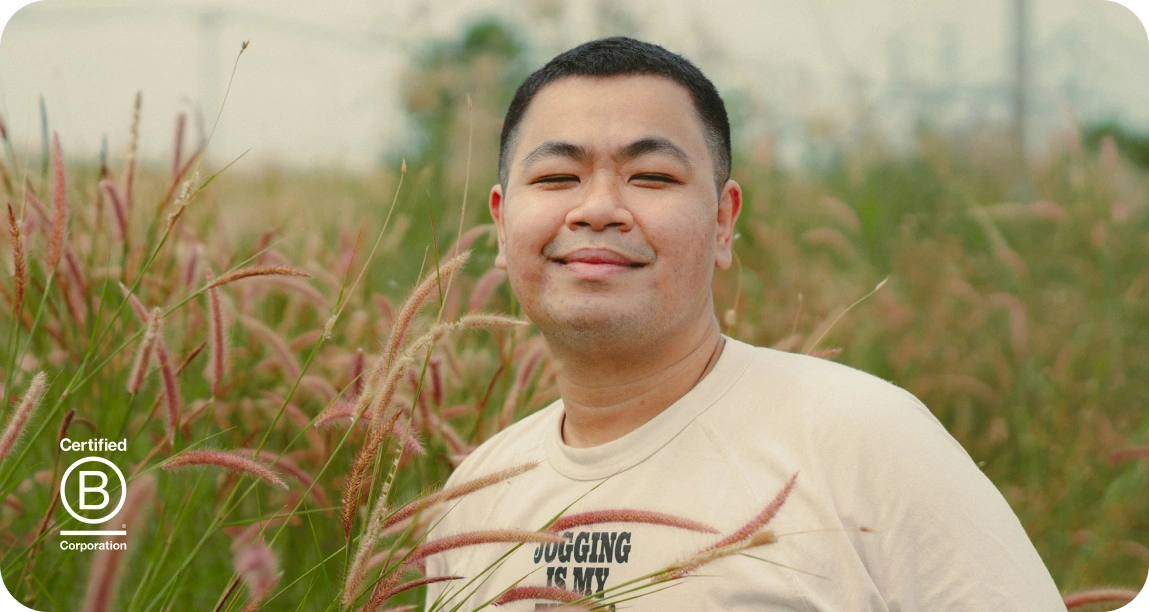A free training program for training CS reps with the skills, tools, and knowledge to delight customers and resolve issues.
By Julian Borra long-time creative strategic consultant, WFI beard and co-author of NYT Bestseller Liferider with Laird Hamilton, the legendary big wave surfer.
If you freelance on a global talent platform then heres to your courageous pioneering self. You are one of the billions out there riding a global wave of dynamic freelance opportunity and endless possibility accelerated by technology platforms and collaborative work applications. But with its possibilities come a particular set of turbulences that might have you wiping out at any given moment if your eye isnt on the game.
So were sharing 10 lite-touch observations and tips for how you might ride the wave better and enjoy the process.
The 10 cover everything from the pitfalls of freelance freedoms, building resilience, calibrating your work streams, retaining your sense of self in a virtual world, keeping your ideas-tank full, and riding the Now to loving the silence, leaving the room, growing Superskin and wowing your Why.
So, to the first of our 10 that devil called freelance freedom!
#1. Freedom
To many, Freelance is freedom freedom from the meat grinder and politics of a full-time job. And Freedom is a beautiful thing but it comes with a big bill attached so be prepared for it. The upside? You get to try many, many different jobs and roles and challenges working with some amazing people across the world in different sectors. And you have the ability to shape and flex the hours to your unique rhythm. BUT. Sometimes, with the freedom a freelance lifestyle offers, comes a sense of dislocation and isolation and an inability to really gel with work colleagues. It's wholly natural. And as the Buddha says Like all things, it will pass. But awareness is everything. Sleepwalking into an increasingly claustrophobic and diminished work life is unhealthy and can impact mental health. And beware the evangelists who keep telling you everything is AMAZING in the freelance world. It isnt. It can be brutal, lonely and anti-social. Youre allowed to call out the bad stuff even on a good day. A simple mindful thing to try if things get bumpy or you start to feel a little isolated or lost is to start every day with listing all of the gifts you are grateful for health, loved ones, your friends, the sport you love, good food, a view you have, a place you get to visit, the ability to help others, a roof and security whatever those gifts are, list them out loud but be sure to finish with the freedom to shape my opportunities and pursue my possibilities everyday
Its a good way to keep yourself optimistic and hopeful. They are the wonder fuel of existence.

#2. Resilience
It sounds a simple enough freelancer rule be resilient - but staying sharp, fresh, agile and on it deep into certain jobs or across a number running simultaneously is a job in itself. The journey to your most resilient self doesnt start in your head. Start with the basics and your creature self. Diet, hydration and sleep are critical. Emotional connection, an opening out of your nature, is vital for balanced well-being. The company you keep also makes a difference. Resilience requires as much positive energy as it can get so try and avoid negative vibes and people. And resilience requires you to check in on your capacity to manage positive stress. That also takes work. But not of the death-or-glory, crash-and-burn, in-at-the-deep-end variety. Test your edges and capabilities in friendly environments first. See where you can push without breaking and look for where your most fragile points are. If you spot any, build some side tasks and exercises to improve your weaker aspects wherever possible. For example, if you have a tendency to lose yourself in Monday madness or slack-mania, and not always in a good way, a simple alert on your phone every 30 minutes that says LOOK UP is a good start. Equally, we can have the tendency to use hyper efficiency as a behaviour to hide behind. Fetishizing efficiency and all of its incumbent tools is not a healthy pastime. It is reductive - and far from building resilience, it reduces it, weakening us, as we become more heavily reliant on a wholly externally directed set of frameworks and directives for work and life engagement. By all means, use the tools, the aids and applications on offer but ultimately you are the source of your greatest resilience. Go you.
A Smarter Way to Build Your Global Team
#3. Calibration
Algorithms. Genius. They are intelligent, increasingly intuitive, accelerating, remarkable. For some, they are the answer to everything the ultimate source of the impending Singularity between humans and machines. Running an exponentially expanding universe of ferociously multiplying threads may be a natural state of play for an algorithm but remember you are not an algorithm however much the increasingly virtual, multiplatform and application world of the global freelancer might seem to expect otherwise. Manage your expectations of yourself and your capacity for parallel working across a set of hyperlinked threads and streams carefully and honestly. Just accelerating across all threads isnt the answer. The art of attending and responding effectively to myriad tasks, hyper tuning multiple work threads in flow so that each is optimal, requires a lot of practice. You cant just switch that skill on, however much the How To in super Easy Steps onboarding video tells you otherwise. When in doubt ask! Identify a person whom you work with or have worked with someone you think is the killer calibrator of multiple work streams and try and get 5 minutes with them ask them how they do it. And take notes. Or record the chat. Keep a record. Calibration requires a balancing act as it involves a collision between our emotional behaviours and moods in relation to the work we are doing and the rational functional nature of that doing - the objective context, the actions we undertake and how efficient we are in undertaking them. Both the emotional and rational dimensions of our character are not fractals or codes, whatever the technologists might have you believe otherwise. They can involve sometimes chaotic, random and shifting coordinates, so working across multiple threads can feel wholly different from one day to the next. Accept it. As we said - youre not an algorithm.

#4. Who?
its very easy to lose yourself in the world of work, especially when it is freelance and even more so when it is almost all online. Theres nothing wrong with being consumed in good stuff that pays the bills. BUT - playing multiple roles and plying multiple versions of yourself across multiple platforms and applications can very quickly turn you into Alice through the looking glass and you find yourself in a topsy turvy world where your sense of who you are, why you are, what youre capable of and who you want to be can get lost. It is not uncommon for even the most together uber professional people to sometimes quietly wonder Where am I in all of this? You can quickly end up falling into the cracks between one freelance task and the next. And when that happens you quickly realise that theres only you to help you. In the freelance world, you are in total control. Thats the upside. But. Maintaining your sense of self is critical to be optimal at all times. Check-ins with family and close friends are a must to keep your real-world self alive in the virtual world. In a world obsessing over the Now, flow-states and the Near Future, looking in the rear-view mirror is not such a bad thing. Checking into your past selves is a healthy thing to do. Sentimentality is a positive attribute that takes us back to moments of meaning for us and helps to remind us of who we are and what shaped us. A sense of nostalgia is good for mental wellbeing so making room in your day to let your mind drift back to different moments in your timeline - remembering loved things people, music, films, places, happenings, games you played as a child any and all of these things can help to ground you back in who you are. For freelancers whose work-self exists almost exclusively in a virtual world, finding ways to bring your whole self to your work is crucial. It reminds you that you are more than the funky avatar or carefully and painfully selected picture on your slack or google profile. However fun or cool it might be, it is a comic book version of the complex creature that you are. So anything that you can do to bring all of you into the room every now and then is good for your Who.
#5. Full Tank
Being a one-trick pony can be a dangerous game in freelance land. Of course, you have your core skills, talents and capabilities but we live in a Plus Plus world where an ability to easily and openly bring multiple fresh ideas into the work process and day job can really help you to manage the turbulence better. Where to find the fuel for that fresh eye? The first rule - look beyond self-help guidance and How to blogs like this. There are greater inspirations, riches, insights and revelations to be had in one walk in nature, a piece of sublime music, a great film, a graphic novel, an art gallery, a street theatre performance, an evening amongst friends or an hour of stillness than in any Guru book. The bewilderment that comes with trying something challenging and new is also a very positive experience. So find something to be the novice in a new hobby, or a side hustle. Your lack of experience will remind you that you dont need to and cant ever possibly know everything. You never will. Equally, fill your mind with brilliant things that you love and let them inform how you take even the most banal things and keep them fresh. General inspirations are very important as they raise the ceiling on your world. The new world of work relentlessly pushes for increasing efficiencies. And an environment fired up by accelerating technology with people and bots and co-bots vying for jobs in the workplace pushes us all into increasingly binary, linear and modal roles. The more binary we get, the less human we become. Thats dangerous. Because ultimately, in an AI ML world, it is our humanity and, more specifically, our more human nature, traits and skills that will be of most value and the most irreplaceable. So yes, if you are a coder or a programmer, a finance coordinator or a project director, take all of the upskilling training and guidance you can get in your chosen field, discipline or specialisation. But for the fullest and most productive idea tank, keep that LOOK UP alert on at all times.
#6. The Now
A freelance lifestyle requires you to clearly and successfully promote past successes as your credentials for the next job, as well as demanding that you keep a loose long-term plan in play and a healthy network running to ensure that your funnel of future opportunities and possibilities stays full and dynamic. But the Now is the sweet spot of the freelancers life - and the working Now is increasingly dynamic, impactful and ethical. Being clear about what your value in the Now is key to navigating your day-to-day working and securing your professional value over time. So - what are your most dynamic attributes and characteristics? How do they demonstrate themselves in how you add value in your work? What impact do you seek to make in the world? How do you think that sense of impact and purpose enriches what you have to offer in your day job? And how important are ethics, decency and fairness to you? Not every job will wear its ethics or purpose on its sleeve? How explicit do you need these things to be in your life to feel assured and secure youre with the right people doing the right thing? Revisit these questions every few months helps you to keep a razor-sharp clarity on where you add value in your working Now. Thats what theyre paying you for. Obviously, your Now doesnt exist in splendid abstract isolation. The calibration and full tank capabilities are an integral and critical part of how you light up the Now, regardless of the freelance project or task you are engaged in. It is also important to be clear about the role of your Why in the working day. Your Why or personal purpose is important to you but try to resist the temptation to make everyone else wear it as well. Over-asserting your own personal purpose at all times in even the smallest jobs and processes can be seen as a hindrance or a vanity. In practical terms, it can reduce your ability to operate optimally on the task in hand. Taking some time to understand how your Why demonstrates itself in your working Now can help to avoid the confusion of when and where to apply it in the moment.

#7. Silence
Even for the most connected and sought-after people in the freelance world, there will be periods of silence when the phone doesnt ring, the DM doesnt land and the email doesnt come. In these moments lies a test. If you are prone to panicking in these moments, then some meditative breathing might be in order because the danger is that you go scouting for anything and take it. We live in challenging times, where paying work is a precious thing, even in the most advanced economies. You will do what you need to do. But just be aware that it is all too easy to get stuck in a run of suboptimal positions and tasks that can crush your enthusiasm, create resentment and most damaging of all, create a feeling of being stuck in a rut and thats when frustrations boil over. So when the silence falls, take a breath and think twice before saying yes to everything you can find. And if economies and bills mean that you just have to do it, be clear about why you are doing it and dont create expectations around your workday that the on-demand work can never deliver. There are two ways to approach the silence when it lands. 1. Enjoy it while it lasts as it creates a natural buffer zone like an emotional firebreak giving you room to reboot, replenish and revitalise yourself. Whether you do this through stillness and meditative tools or whether you do this through some of that LOOK UP stuff we explored in Full Tank will be down to your character, your mood and your energy at the moment. 2. Do some life filing - personal stuff, work admin, family holiday planning, bank stuff. Whatever it is, undertaking very practical tasks that clear your mind and your desk are a good use of time. Sorting the clutter of timesheets, accounts, invoicing, expenses, taxes, upgrades and updates for your kit, useful networking, connecting with your broader work opportunity plan, or even catching up with old work clients and colleagues creates an enormous sense of well-being.
If you trust one thing, trust that the noise will return soon enough and the silence will be lost to you, so use it well.
#8. Sayonara
How you enter a room, not only physically [room] or digitally [zoom] but also emotionally, spiritually, metaphorically and intellectually is an art form on which there are a number of smart top tips and guides to inspire and inform you. [And by room I mean working space, role, task or project.] There are many guides and pieces of advice on how to enter and operate in the room. From how to build workplace confidence, presentation tips, task focus, clarity of communication, debating skills, and active listening to conflict management, functional rigour and maintaining momentum. But the one thing that gets forgotten is the art of knowing when and how to leave a room. Some rooms, however financially attractive they might be, are simply bad for our health confidence and quality of life. But we often stay in them nonetheless. Willpower, stubbornness, a need for completion, professional ethics any number of things can keep you in a room working with people or on projects that demean, diminish, degrade or damage you. Feeling we cannot bail from a project or that we need to close it out for contractual purposes means we need to think smart. Leaving a room can be emotional, spiritual or intellectual without being physical. To do so requires us to compartmentalise the job or project and the associated people assess what the value of them has been. Dont just focus on whats bad, try to find the positives the gifts to be grateful for - and remember them [making a note of them will fix them more firmly in your head]. And be really clear about what it is that is making you want to run screaming from the room and then separate yourself emotionally from it and the job. This will give you the distance you need to manage your tasks without blowing up. Its not quite as dramatic as crashing the ZOOM, or doing a drops the mic office walkout, but your mental health will thank you for it.
#9. Superskin
Were all bulletproof kevlar superheroes - until someone gets under our skin. When they do, things can all fall apart for us real quick. We can lose a sense of proportion and purpose even in the smallest jobs we are doing. Recently we have become aware of the culture of micro-aggressions and although this is a useful framework and reference point to explain some of the odd or uncomfortable interactions we have to endure in the workplace, it is an academic framing which may be very good at helping you identify and intellectualise a microaggression but often bereft of any practical tips or guidance on which ones to just ignore and dismiss and which to attend to. Developing a superskin requires us to get a whole lot better at filtering which ones to respond to and which ones to ignore for one simple reason: respond to every microaggression a human being might send your way and youll be on your knees in the first week. When in doubt engage your human instinct it is very likely to give you a pretty good idea of how to respond in the absence of any other clues. Its worth reminding ourselves that some humans actually enjoy provoking, picking on, marginalising or demeaning people - and the more they know theyre getting to you, the more they enjoy it. Perhaps theyre sociopathic, which means its nothing personal - you are just collateral damage along the way but the damage you will be if you dont learn to spot them early and adapt your mindset and attitude accordingly. Or perhaps they are just people who are stressed, under duress, panicked or slightly out of control and lashing out. It doesnt make it feel any better but remembering that were all gloriously flawed and fallible people sometimes can help A thicker skin doesnt make you unfeeling, it simply protects you from the turbulence people under their own duress can bring. So build for others' flaws and break zones. And if all else fails see Tip 9!

#10. Why?
This is the biggie. The mother of all superpowers. At its best, your Why is like a turbo booster, a centrifuge, a force field, a compass, a meditation and a North Star all rolled into one! Knowing Why you do what you do and I mean really Why you do it beyond paying bills, buying clothes, tech kit, holidays and treating yourself to that rather over-priced frappuccino from the place with the hot barista once a day. Your Why can be transformative to everything in your working life and beyond. When every decision you make is tied to a clear and meaningful Why, you are far less likely to stray from whats going to make you happy and if you do, you are far more likely to be able to navigate yourself back on track. Your Why is not necessarily the easiest thing to define for yourself. Your sense of purpose might be quite complex, a web of intersections beliefs, desires, ideologies and objectives or it might be as simple as be good and kind in all that you do. Even something as simple as the latter gives you a very clear idea of what you shouldnt be doing. Organisations that are overly arrogant or aggressive are not kind and rarely end up being good. Organisations run on a cult of personality or global hubris are very unlikely to place decency kindness and humans front and centre {you know who you are Meta]. Equally, If you know that under duress you can become frustrated and reactive, working in a high-octane environment or culture is probably not conducive to a kind existence. So get that Why into shape. Test it on those nearest and dearest to you they will be quite a good barometer for whether it feels authentic to you or achievable. And dont forget - there must be a virtuous loop that connects your Why to your Who [#4] - as the impact you wish to make in the world and the person you need to be to do it must be able to co-exist with your higher order Why. Otherwise, you will be permanently in conflict with yourself. Thats bad.
Ready to tackle the freelance world now?
We hope that this round-up of tips has been useful to feel more confident in your freelance journey. But if you're still looking for inspiration you can browse other articles about the freelance world in our blog or check the interviews of other freelance professionals who have already joined Work for Impact. In addition, if you sign up, you'll have access to our freelance community, where you'll have the chance to meet and chat with like-minded professionals from all over the world. See you there!



